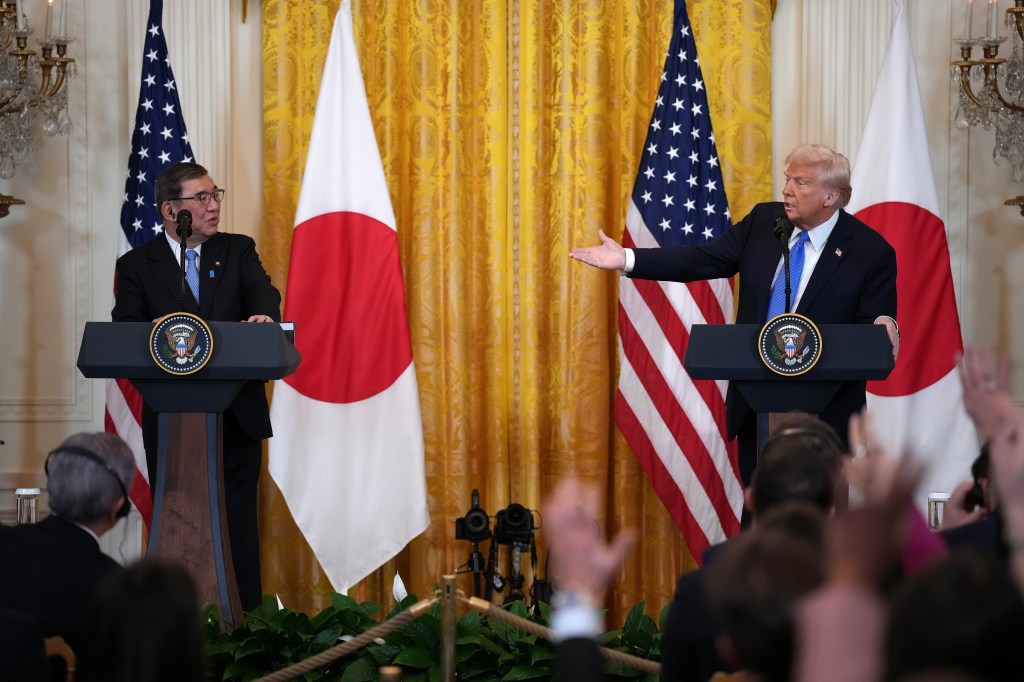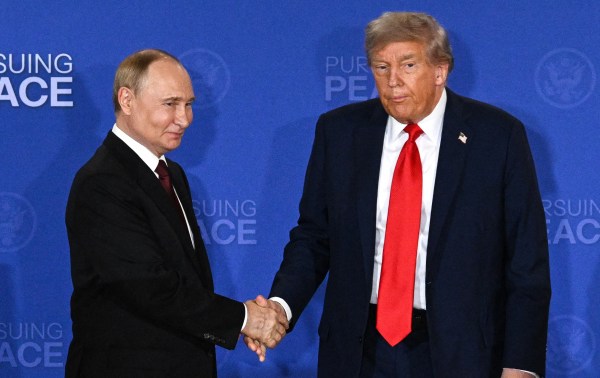The words “nuclear proliferation” fill many people with dread and anxiety, and for good reason. But just as there are states with very different characters within the current nuclear club—the United States and France are not very much like China and Russia—there are big differences among the countries that could become nuclear powers. A nuclear Iran is a prospect to be feared—and prevented, work which probably is not yet entirely finished.
But what about a nuclear Japan?
As a non-paying reader, you are receiving a truncated version of Wanderland. You can read Kevin’s full newsletter by becoming a member here.
The consensus among the publicly available assessments of the world’s intelligence agencies is that Japan does not, at the moment, have a nuclear weapons program per se. As the only people on Earth against whom nuclear weapons have been deployed, the Japanese are understandably sensitive about the issue.
But many experts in the field consider Japan a de facto nuclear state. The current prime minister at one point suggested that Japan could possibly host U.S,-controlled nuclear weapons or build an arsenal of its own, though he has been somewhat equivocal on the matter.
Japan has long experience with using nuclear power to generate electricity—and, in spite of a decline in nuclear investment after the 2011 Fukushima episode, Japanese authorities have wisely decided to press for an expansion of the country’s nuclear-power capacity, because nuclear power is an excellent source of clean, reliable, safe power that produces no greenhouse gases at the point of generation and relatively little up the supply chain. Japan has both experience and expertise in acquiring, processing, and handling nuclear materials.
Japan is home to many of the world’s premier manufacturers, with enormously sophisticated technological and design capabilities embedded in its domestic industries. Japan also has plenty of investment capital at its disposal, including a sovereign wealth fund that operates a venture capital firm and one of the largest private equity businesses in the world—one that lately has been showing a great deal of interest in the chip-and-semiconductor business. Even with Japan’s deep economic challenges and its political dysfunction, it could probably produce a nuclear weapon—and a credible nuclear arsenal—in very short order, about a year in the estimate of some experts. If Japan’s manufacturing past is prologue, count on the Japanese to produce a highly efficient and reliable nuclear weapon at a better price than its American or European peers—if it should come to that.
Should it come to that?
The government of Prime Minister Shigeru Ishiba, a member of Japan’s conservative Liberal Democratic Party (LDP), has just canceled a planned high-level meeting between U.S. Secretary of State Marco Rubio, Defense Secretary Pete Hegseth, and their Japanese counterparts after being berated by the undiplomatic diplomats of the Trump administration over its defense spending, lately at a high of 3 percent of GDP but less than the 3.5 percent now demanded by Elbridge Colby, undersecretary of defense for policy. Colby, one of those gold-plated populists (Groton, Harvard, Yale Law) who orbit Trump, possibly ought to have known better: He spent part of his childhood in Japan while his father, an investment banker, ran First Boston’s operations in Tokyo. (These people really are the bane of elitists and globalists, are they not?) Japan’s LDP is going into a tough legislative election and presumably did not want to appear to be running the kind of government that enjoys being slapped around by American bullies.
And so the “2+2 Ministerial Dialogue,” as the U.S.-Japan-India-Russia meeting is known, will be “2+2-1.”
It is remarkable that the supposed “realists” of the Trump administration look at Japan as a problem for Washington when Japan is—plainly and obviously, and irrespective of whether it wants to be—a solution. Or at least a big part of a solution.
Washington’s problem in Asia is not Japan—it is China.
Donald Trump, who is in many ways stuck in the ’80s—not a zombie Reaganite but a zombie Perotista—still speaks about Japan from time to time with the outmoded tropes of the Asian economic superman—as though a country that has seen average real GDP growth damned close to 0.00 percent in recent years is somehow eating our lunch. There was a great deal of angst about Japanese automakers a generation ago, but ready labor, cheap capital, and proximity to the world’s most lucrative consumer-goods market have (much more than any protectionist policy, though there have been some of those, too) over the decades encouraged Japanese firms to invest in U.S.-based manufacturing, and today an American autoworker is about as likely to be employed by a Japanese firm as by Ford. Every business interest group exaggerates its economic impact, particularly when it comes to jobs, but a reasonable estimate would put the number of American workers who owe their jobs directly or indirectly to Japanese automobile manufacturing at more than 1 million. U.S. GDP per capita currently is more than 2.5 times that of Japan and very well may end up being three times Japan’s—but, somehow, Trump and the ignoramuses around him believe the United States is being economically victimized by trade–even as they now agree to a Japanese firm’s acquisition of U.S. Steel, a merger Trump once denounced in the bitterest of terms.
The argument that countries such as Japan and the more expansive welfare states of Europe are subsidized by superabundant American investment in military capacity is, and always has been, a canard. It is not the case that Japan and the advanced economies of Europe can afford larger welfare states because they shift their defense burdens onto the United States: The United States has a gigantic military because the United States wants one and is willing to pay for it; Europe and Japan have larger welfare states because they want them and are willing to pay for them. The difference is that the United States is, for all of its fiscal problems, still better able to afford its war machine than Japan and the European countries are able to afford their welfare states, which are paid for with high taxes and—much more consequentially—indirectly with reduced economic dynamism. Don’t take it from me—ask The Economist, which put it plainly: “The American economy has left other rich countries in the dust.”
The Trumpist rationale is wrong, as it almost always is. But the push toward a more capable Europe and Japan goes in the right direction: The Europeans, of course, know that they need to do more to be able to see to their own defense interests, which is what all that talk of “strategic autonomy” has been about. Japan, which has been hearing the kind of nationalistic rumblings that are associated with a nation in decline, knows that it should be doing more, too. But neither the Europeans nor the Japanese have shown much appetite for doing as much as they need to—much less for doing as much as the United States would, in the course of seeing to its own interests, prefer to see them do.
A more “normal” Japan, one relieved of the suffocating pacificism of its postwar constitution, one possessing a more capable military and a more assertive foreign policy to go with it—and, possibly, possessing a nuclear arsenal—would be for Washington the easiest, least expensive, and arguably least dangerous way of shifting power in the Asia-Pacific in a way amenable to U.S. interests. We need not resort to crude zero-sum thinking to understand that a more powerful Japan would present a real loss—and a challenge, and a problem—for the elderly autocrats in Beijing.
A resurgent Japan would present a challenge to China in its own right and on its own terms, and it would also be (we need not emphasize the fact in public) a stronger, more assertive, better-armed U.S. ally in a place where we very much need one. It is not as though the United States is overwhelmed with suitable partners in Asia: Even if we assume the rosiest scenario for India’s economic and military development and for Indo-U.S. cooperation, it would be a very long time before India would be able to provide the kind of counterbalance that would serve U.S. interests. Who else? The Republic of Korea? A dynamic economy and an important ally, to be sure, but one with fewer people than Italy and an economy about the size of Florida’s (around $1.7 trillion). Singapore? Mongolia?
All of the caveats about Japan should of course be given their proper weight. Japan is in demographic collapse. Its economy is stagnant. Its politics seems incapable of breaking through the web of interlocking elite interests to produce deep reform or new and innovative ideas. About these, it is difficult to gin up much optimism. But it also is difficult to think of anything that might help to mitigate these problems as much as a renewed sense of national purpose. There might, after all, be more to Japan than a comfortable national decline in the featherbed of Toyota’s profits.
A newly assertive Japan arming up and flexing its still considerable national muscle would be good for the United States and would give Beijing fits—it would be a hell of a lot more significant than some tariffs on Baowu Steel or China Minmetals.
But it will take smarter people than those employed in the Trump administration to get it done, and more patience and bipartisan continuity than Washington has exhibited in recent years.
Words About Words
“No problem.”
I have all but given up on that one. You know how it goes: You order your cup of coffee, the guy at Starbucks gives you your cup of coffee, you say, “Thank you,” and he says:
“No problem.”
And you don’t—you try not to!—say:
“Well, of course it’s no problem, you nincompoop. I paid you for a cup of coffee. You gave me a cup of coffee. I said, ‘Thank you.’ I am a pretty creative guy, but I cannot think of a plausible scenario in which it would be a problem for you to give me the cup of coffee I just bought, and your formulation suggests that there is such an imaginable scenario or, even worse, contains within it the unspoken assertion that you are doing me some kind of favor by giving me the cup of coffee I just bought. The words you are seeking in vain are, ‘You’re welcome.’ You might even stick a ‘sir’ in there, somewhere, if it comes up.”
We have too much democracy.
By democracy I don’t mean merely the procedural thing of voting for candidates or having representatives vote in an assembly on this or that piece of legislation. I mean the underlying cult—the real and true –ocracy, there—that sanctifies majorities, or large groups, or the common, the capital-P “We the People.”
The cult of the People is very useful to a certain kind of lazy and craven pundit. (Not that I know any of those!) In the same way that Jon Stewart used to toggle between “Clown Nose On” and “Clown Nose Off,” the lazy pundit can switch, whenever it is convenient, between high-minded idealism and cold-eyed political “realism,” which generally isn’t all that realistic, but never mind that, for now.
You know how it goes: “Republicans should get more serious about fiscal stability. And that means either cutting spending on programs people like, such as Social Security and Medicare, or raising taxes, or, probably, both.” The weaselly pundit looks around, nervously. What can he do? He is a Republican-affiliated television mouthhole, and so he cannot come out in favor of: 1) spending cuts opposed by Donald Trump and other Republicans; 2) higher taxes; 3) running up the debt until there is a fiscal crisis. All are anathema. And, so:
“Well, good luck winning an election running on high taxes or cutting Social Security!”
When Bill Clinton got into trouble for his relationship with the head intern, Democrats scoffed: “The American People don’t care about this!” Or, “This is a distraction from the People’s business!” As anybody who paid attention to television news ratings or newspaper sales in the era knew perfectly well (to say nothing of the honest kind of pollster), the general public did care a great deal about Clinton’s adultery and perjury. But We the People can be recruited to any cause, especially if it is only a defensive maneuver.
On the other hand, point out (e.g.) that the Democrats keep running into a series of political buzz saws by taking the radical side of losing issues, and you’ll be met by indignant moralizing.
The problem with sanctifying “50 percent +1” majoritarianism is that it boils down to a might-makes-right argument, and all of us—all of us functional mentally normal adults paying attention, anyway—know that majorities get it wrong all the time, probably more often than they get it right. As the economist Bryan Caplan has observed, we have nice things such as freedom of speech not because We the People demand such liberality but because moneyed elites have disproportionate influence over our politics and are able to frustrate the popular will from time to time, or at least mitigate its worst excesses.
Everybody knows that the People get it wrong a lot, that the usual stampeding herd of independent thinkers will run right off a cliff like those mythical lemmings we all used to learn about. (I’m not much for tales of corporate evil, but I do enjoy the juxtaposition of “Walt Disney” with “staged lemming suicides.”) What you need to painlessly resolve the cognitive dissonance that comes from both valuing democracy and knowing people is either a more capacious and subtle metaphysics (which, ho! ho! ho!) or some simplistic and half-articulated horsepucky (there it is!) about how “everybody’s opinion matters,” which, I am here to tell you, it don’t.
I’m getting back to the barista. Just give me a sec.
A few years ago, I was in Norway, and one of our guides was going on and on in a particularly smugly unbearable Scandinavian fashion about how egalitarian Norwegians are. He informed us, in his smugly unbearably Norwegianly particular way, that it is not unusual for college students to call professors by their first names. “No titles,” he said.
“And your king—what does your king think about all that? What says His Majesty, King Harald V of the House of Glücksburg, about titles?” I didn’t say it that smoothly, but, approximately, that.
He wasn’t wrong, of course. One of the useful things about largely ceremonial constitutional monarchies is that they provide a kind of hierarchy theater by means of which whatever pent-up social-hierarchy energy a society contains may be relieved by catharsis. In many societies that have a genuinely democratic sensibility, you’ll see habits and institutions in tension with that sensibility: In Germany, they sometimes practice a very formal kind of etiquette; in Norway, they have a monarchy; in England, there is a monarchy and a surviving class system and titles and an aristocracy. (My friend Dan Hannan, who possesses the better kind of democratic sensibility in a very high degree, serves in the House of Lords and marvels that the world’s least democratic legislative chamber is in many ways its most responsible.) But each of those societies has its own kind of genuine egalitarianism, one that is much less pronounced in a number of societies that supposed put equality first, such as India, the constitution of which proclaims it a “socialist secular democratic republic,” each of those three adjective and one noun being true at times but seldom all the way and all at once.
In the United States, we do not have a class system—we just have money. We do not have a monarchy, as much as we have tried to make the presidency into the office of a god-emperor. We also have a great deal of social mobility, which matters: If you live in a college town and enjoy an above-median income and have some education, then surely it will occur to you that the young woman taking your order at Outback Steakhouse may very well be more highly educated than you are, or on her way to it, and possibly only a couple of years away from out-earning you. There is a hierarchy to the server-client relationship, but, in the United States, such hierarchies are not necessarily permanent.
We sometimes try to compensate with status goods, but that is a dead end: You cannot buy an aristocratic family history, but Hermes will sell a tie or a handbag to anybody. It may be because we have so few reliable status markers that Americans are so status-conscious and so anxious about it. One of the consequences of this is an utterly phony and affected sense of familiarity and intimacy that we insist on in public as a kind of shorthand for our more general commitment to the egalitarian principle, which is excessive in its most genuine form and often exaggerated to grotesquery.
“You’re welcome” is formal. “No problem” is casual, part of a pretense that we are all friends here and what’s happening is only incidentally commercial in character. I never much cared about honorifics and that sort of thing, and I always felt a little weird when students called me “Professor Williamson,” an awfully elevated title for a man without so much as a humble B.A. But when American Airlines wants to call me “Kevin” like we’re buddies when they’re leaving me stranded overnight in Bangor on a rainy evening—then, I want to be “Mr. Williamson.”
All of this is compounded by the American habit of insisting that restaurant servers and others in similar jobs speak to their customers as though their customers were 3 years old.
“Are we ready to order?”
“We? Are we … plural?”
Or:
“Did we save room for dessert?”
The we there makes the infantile save room that much worse.
Eventually, people will start talking that way in dive bars:
“Did we save room for more Jack Daniels?”
Another one that brings out my inner strangler is when a server replies to my order with the word, “Perfect!” as though I had made a really excellent and non-obvious choice from a 20-page wine list (and, even then, do I really need or crave the waiter’s approval?) rather than ordering my standard venti (because we all speak Italian at Starbucks) iced coffee.
“Perfect? Not 97 percent? Not A-plus but perfect?”
“Can I get a name for the order?”
“Professor Williamson.”
But that won’t do, either: Mr. Williamson was my father, and Prof. Williamson is my wife.
Like Tammy Faye-level makeup on an old woman or oversized shoulderpads on a fat man’s suit, trying to plaster over the facts with paint and powder often only serves to highlight the underlying facts of the case we are all pretending to ignore.
Here’s a useful metaphor, I think: I surely am not the only person on Earth who thinks that the kind of improvised “dancing” young people (and less-than-young people) are expected to do at nightclubs or wedding receptions or whatever is awkward and ungraceful and not very much fun, whereas more formal and structured kinds of dancing not only are more enjoyable but also, in a sense, more accessible in that there are steps and rules that can be learned by anybody who wants to learn them, no special talent or grace or musicality needed. In a similar way, formal etiquette (like formal language!) can be socially liberating: One learns a few basic rules and principles, and holding to these with some reasonable amount of care will get one through most uncertain social situations without very much anxiety or self-consciousness. If you want people to have good manners, then you have to teach them what good manners are, which means that somebody has to decide—however undemocratically or arbitrarily!—what good manners are. That includes how we speak to one another in social or commercial situations. There isn’t anything to be embarrassed about in being on either side of the counter at Dunkin’ Donuts, but pretending that we’re all old friends just spending the morning together is weird and awkward and fundamentally dishonest.
And what’s so hard about this?
“Good morning.”
“Good morning. I’d like a large black coffee to go, please.”
“Yes, sir. That will be $3.09.”
[Taps the American Express card. Leaves a medium-sized tip in spite of the fact that this is patently ridiculous in the context of counter service on the Pareto-ish theory that $1 tips cumulatively mean a lot more to the young man working at Dunkin’ than it does to me and most of the other customers, a perfectly fine principle when you don’t try to enforce it at gunpoint.]
“Here’s your coffee.”
“Thank you.”
“You’re welcome.”
And, then . . . nothing.
[Exit, pursued by a bear.]
Elsewhere
You can buy my most recent book, Big White Ghetto, here.
You can buy my other books here.
You can check out “How the World Works,” a series of interviews on work I’m doing for the Competitive Enterprise Institute, here.
In Closing
Tomorrow is the Nativity of St. John the Baptist, one of my favorite New Testament figures. I admire his asceticism and his humility (virtues I have not yet mastered and may never), and he seems to have a sense of humor, which is admirable even as one gets a sense of his personal fanaticism, as well. Saints, it seems, rarely were easy to get along with or to live with—a problem John solved by separating himself from the community and dwelling out there in the desert with the locusts and the wild honey.
The voice of him that crieth in the wilderness, Prepare ye the way of the Lord, make straight in the desert a highway for our God.
Every valley shall be exalted, and every mountain and hill shall be made low: and the crooked shall be made straight, and the rough places plain:
And the glory of the Lord shall be revealed, and all flesh shall see it together: for the mouth of the Lord hath spoken it.
The voice said, Cry. And he said, What shall I cry? All flesh is grass, and all the goodliness thereof is as the flower of the field:
The grass withereth, the flower fadeth: because the spirit of the Lord bloweth upon it: surely the people is grass.
The grass withereth, the flower fadeth: but the word of our God shall stand for ever.
John was beheaded for speaking out against the personal immorality of a powerful political figure. I wonder where we ever got the idea that Christianity was supposed to be comforting?











Please note that we at The Dispatch hold ourselves, our work, and our commenters to a higher standard than other places on the internet. We welcome comments that foster genuine debate or discussion—including comments critical of us or our work—but responses that include ad hominem attacks on fellow Dispatch members or are intended to stoke fear and anger may be moderated.
With your membership, you only have the ability to comment on The Morning Dispatch articles. Consider upgrading to join the conversation everywhere.